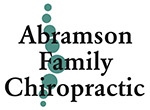Non-Operative Treatments for Lumbar Spinal Stenosis with Claudication
Neurogenic claudication is the medical term used to describe the symptom of pain induced by walking, and it is caused by damage to the neurological system as a result of spinal stenosis. A recent literature review found that a multimodal treatment approach that includes manual therapy, exercises, and patient education is an effective non-surgical treatment for the management of lumbar spinal stenosis with neurogenic stenosis. Doctors of chiropractic utilize manual therapies and rehabilitation exercises when treating patients with lumbar spinal stenosis. BMJ Open, January 2022
Health Alert: Sleep-Disordered Breathing May Raise Risk for Lung Cancer. Sleep-disordered breathing is a group of conditions characterized by abnormal sleeping patterns, which includes obstructive sleep apnea. Following a review of data from seven studies, researchers report that sleep-disordered breathing may elevate the risk for lung cancer diagnosis by up to 28%. For comparison, smoking cigarettes increases the risk for lung cancer by 3,000%. European Journal of Cancer Prevention, May 2022
Diet: Cranberries Benefit Cardiovascular Health. Among a group of 45 healthy men, those who consumed a 100 mg cranberry extract daily for one month experienced significant improvement in flow-mediate dilation, which signals improvement of both heart and blood vessel function, compared with participants given a placebo. Food & Function, March 2022
Exercise: Exercise Can Reduce Depression Symptoms. Iowa State University researchers report that individuals with major depression who engage in a 30-minute moderate-intensity aerobic exercise session may experience an improvement in mood that may last as long as 75 minutes post-workout, and it can also improve the effect of standard therapy. Psychology of Sport and Exercise, July 2022
Mental Attitude: Napping May Increase Alzheimer’s Risk. New research suggests that older adults who nap in excess of 60 minutes per day may have up to a 40% increased risk for Alzheimer’s disease. Study author Dr. Aron Buchman adds, “More studies are needed to better understand the relationship between napping and Alzheimer's disease. But it's possible that improving sleep may be a way of modifying the course of Alzheimer's disease and its manifold manifestations.” Alzheimer's & Dementia, March 2022
Wellness/Prevention: Sleep Apnea Can Speed Aging, But Using a CPAP Can Help. A study that included 24 sleep apnea patients revealed the condition accelerates aging on a genetic level. However, the researchers observed that using a continuous positive airway pressure (CPAP) device for four hours a night for one year not only slowed the trend but reversed it in some participants. European Respiratory Journal, January 2022
Quote: “Our goal should be to understand our differences.” ~ James D. Watson
